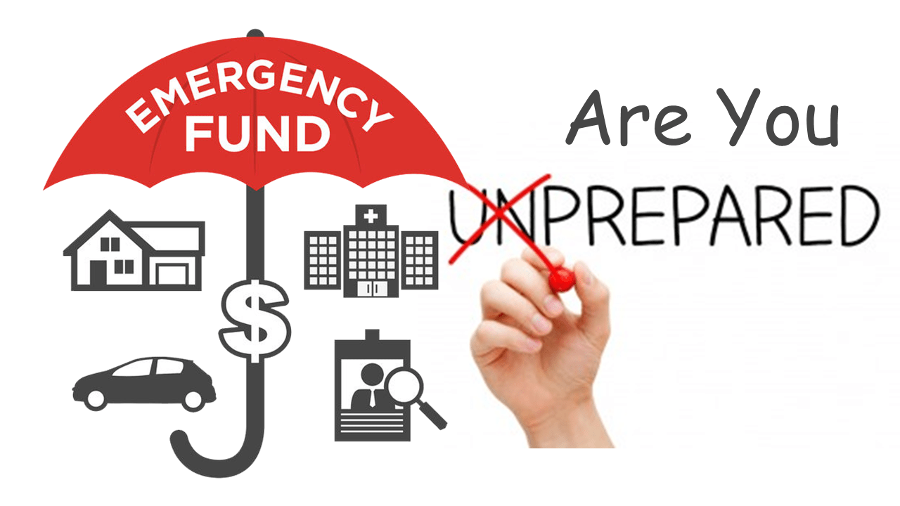“The two most important days in your life are the day you are born and the day you find out why.”
-Mark Twain.
 (P.C: Google Images)
(P.C: Google Images)
Connecting life with a purpose is what usually drives one towards excellence and better well-being. Translation of that purpose into clear action plans and adherence to those action plans is what makes a difference, creates greater impact and makes an individual extraordinary in their life’s pursuits.
In the world of finance too if one can connect money with some purpose, the probability of living a life of financial ease increases as you’ll mostly be better positioned financially.
This is because when you tend to hold money with you for a particular purpose rather than spending it without reason, wasteful expenses reduce while ensuring that sufficient money is present when required or needed.
For example:
- Emergencies can happen unannounced and being strong financially plays a critical role in addressing such a situation. So if you maintain an amount separately for some emergency purpose, the chances that this amount will be used for some other purpose are almost negative. Moreover you’ll be in a position to control the situation without it much affecting your financial position.
 (P.C: Google Images)
(P.C: Google Images)
- Similarly when you are building your house or office, you designate certain money for certain purpose like for technology enhancement, for employee distribution, for furniture etc.
You also practise purpose based budgeting in order to enjoy a certain experience from the fund set aside.
 (P.C: Google Images)
(P.C: Google Images)
For example:
- You wish to take your family for a vacation. For this purpose, you start setting aside money against the time available till the vacation date. You decided to allocate a sum of Rs. 5 lakhs. Now that you know the amount, you’d select your destination and plan other things concerning the vacation keeping in mind the amount set aside for this purpose.
- Another example would be planning for your child’s marriage. Marriage is an important event both personally and financially. So if a fund is allocated for this purpose consistently and for every sub category within it, executing a marriage would be stress free at least from the financial perspective.
Therefore, upon allocating a fund for a purpose, the probability of exceeding your expenditure more than the amount allocated for it is almost 1 out of 10 as psychologically once you note down an amount, it automatically acts as an instruction to your brain to limit expenditures to that amount. Hence, your money is utilised efficiently which means that random spending are curbed and it’s much easier for you to keep a track on your expenditures.
 (P.C: Google Images)
(P.C: Google Images)
People generally budget for short periods like daily budgeting or monthly budgeting, but it’s essential that one graduates to long term budgeting in order to make the best use of their finances. It’s every person’s duty to have a comprehensive budget sheet planned for personal and professional life. Budgeting can also be done for one’s savings, investments and social responsibilities too.
Any goal that requires involvement of money can be converted into a purpose based budget sheet for best utilisation of finances.
Another well observed situation is when businesses crash or burst despite showing positive figures. One of the primary reasons for this is financial mismanagement. Budgeting is the essence of financial management, its core. Without practising it, no matter what’s the percentage rate of the growth of the company, it’ll still be at a higher risk of crashing than staying firm when problems mount.
HOW TO START PURPOSE-BASED BUDGETING?
 (P.C: Google Images)
(P.C: Google Images)
Note down all the detailed expenditure of the required purpose for which you are doing budgeting. For example, in marriage you may have more than 50 areas of spending. Make a note of all the 50 areas. The same applies for starting a new business, putting up a factory, developing marketing budget, family expenditures and much more can be budgeted respectively for more clear and robust cash flow planning. The following steps can be incorporated while conducting purpose based budgeting:
- Step 1: Find out what’s the total estimated cost;
- Step 2: Find out what’s the duration left in hand;
- Step 3: Find out what’s the cash reserve right now for the purpose;
- Step 4: Preparing the budget sheet:
a) How does the expenditure look like?
b) Conduct detailed breakup of expenditure; - Step 5: Prioritization of top expenses from the detailed budget sheet;
- Step 6: Red mark (or highlight) avoidable expenditures;
- Step 7: Analyse what can be avoided/deleted from this purpose based on your future cash flow and savings availability;
- Step 8: Check an alternative in the market for the heading you’ve budgeted; for example: sometimes you may spend less having an expert event manager for executing a marriage or sometimes you may not build your dream home and see an alternative in booking a time share/land share holiday home.
Therefore budgeting is a non-negotiable action for good financial health; while going a step further and conducting purpose-based budgeting is a guaranteed path towards successful financial management. Such a practise although complex initially is the first impacting step that you can take towards simplifying your life and towards ensuring a financial stress free life for yourself and for your family.
 (P.C: Google Images)
(P.C: Google Images)
If you’ve read this far, I think you’ll gain a lot more value out of this video. Check it out.

